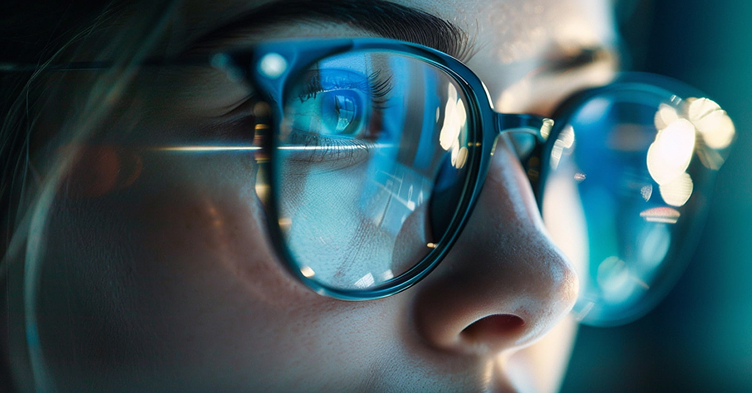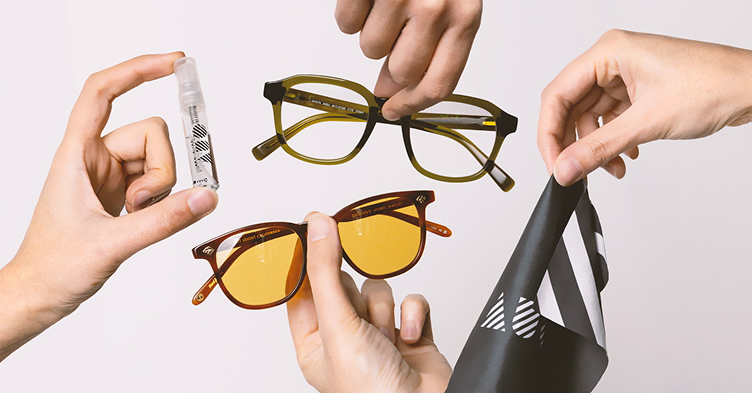Single vision
Offering clarity for one type of vision issue. Ideal for treating nearsightedness, farsightedness, presbyopia, and astigmatism.
Read moreBrowse our articles to discover the top styles to complement with a blue light coating.

Discover the benefits of adding blue light-blocking lenses to your eyeglass frames.
Read more
Suffering from smudgy frames? We asked our resident optician for his best tips on how to properly clean your glasses.
Read moreYes, it's safe to wear blue light lenses all day. While they won’t eliminate eye strain entirely, they can help reduce discomfort from prolonged screen time.
Optometrists generally recommend replacing your blue light glasses every 1-2 years, depending on usage. Over time, the lens coatings and frame materials may degrade, reducing their effectiveness.
Prolonged exposure to blue light may potentially damage retinal cells and contribute to vision issues like age-related macular degeneration. It could also increase the risk of cataracts, eye cancer, and growths on the clear covering of the eye. (Source: UC Davis Health)
Anti-reflective lenses reduce glare from light bouncing off the lens surface, improving clarity and comfort. Blue light lenses filter out harmful blue light from screens to reduce eye strain and improve sleep quality. While both enhance visual comfort, blue light lenses specifically target digital screen exposure.
Yes, blue light lenses are definitely worth it. They can help reduce eye strain, improve comfort during long screen sessions, and can enhance sleep quality by filtering out disruptive blue light. Perfect for anyone who spends time on digital devices.
Most sunglasses protect your eyes by blocking UV radiation, reducing glare, and filtering blue light outdoors. However, not all sunglasses effectively block blue light from digital screens.